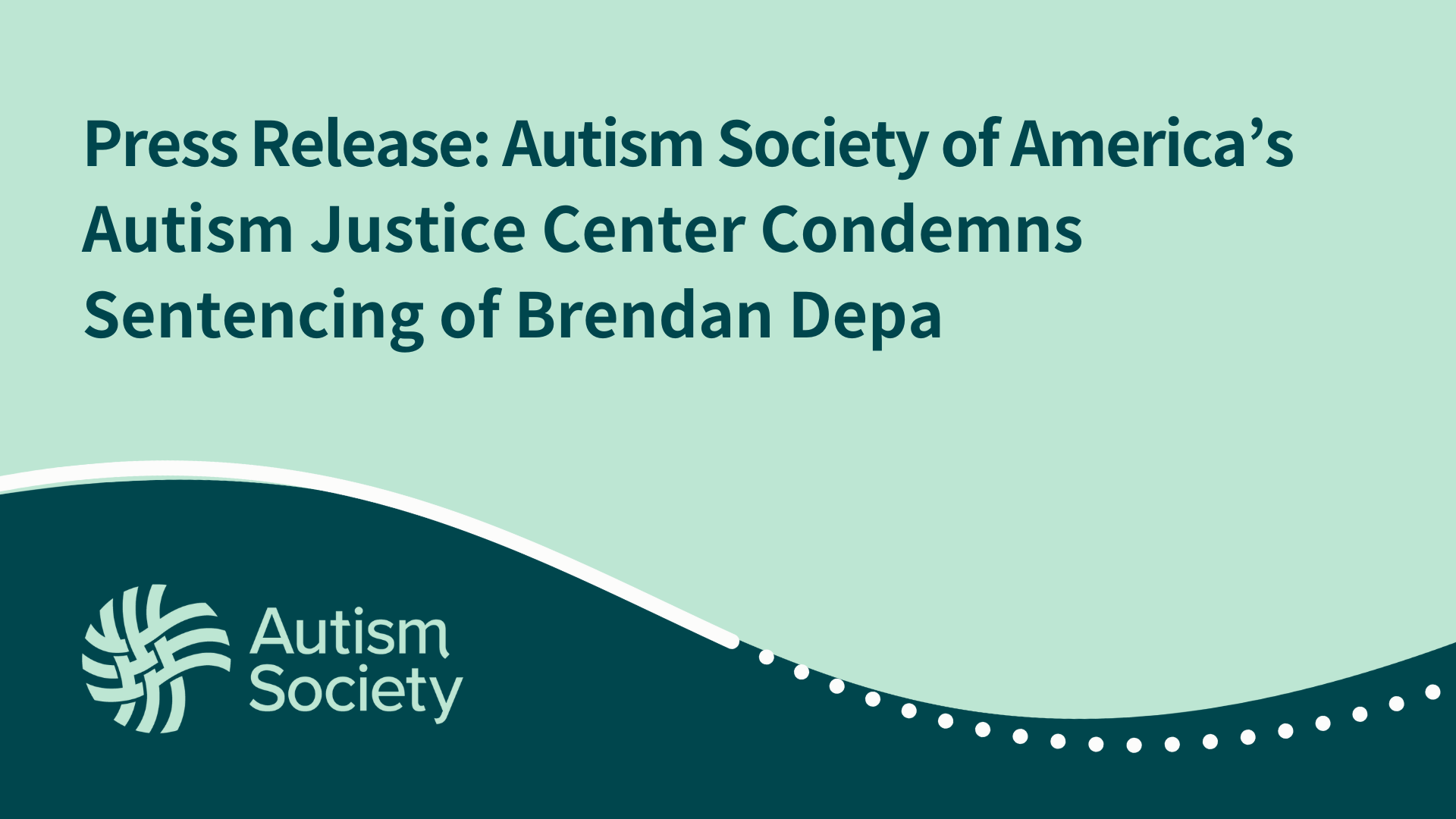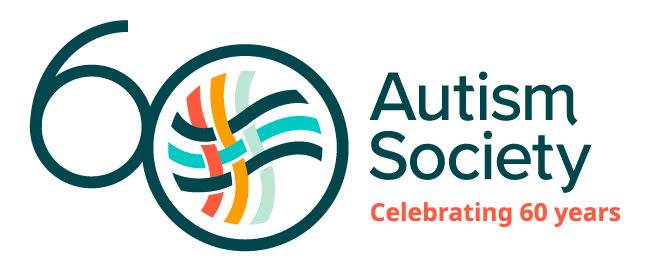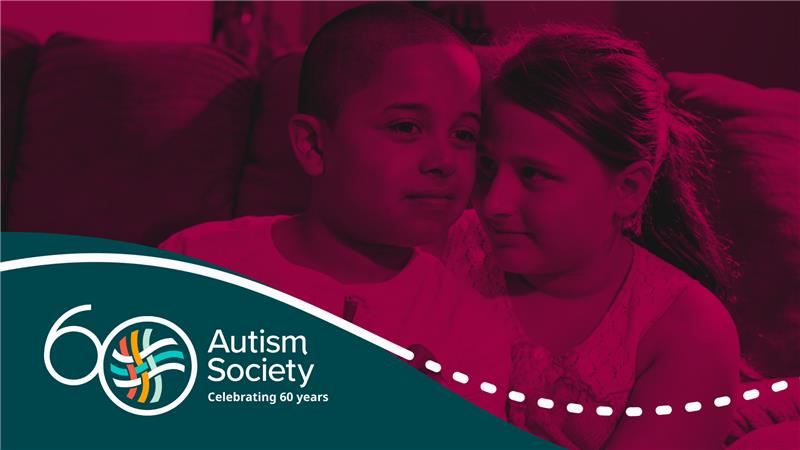
Rockville, MD – August 13, 2024– The Autism Society of America’s Autism Justice Center condemns the five-year prison sentence and fifteen-year probationary sentence handed down to Brendan Depa in Flagler County, Florida. Brendan, an eighteen-year-old Black male with Autism, pleaded no contest to charges of assaulting a paraprofessional as a special-needs student.
Brendan’s Autism diagnosis indicates that he has significant and complex support needs; these challenges could include communication, sensory processing, socialization, self-regulation, and more. Because of his high-level of support needs, Brendan has lived in therapeutic group homes, where he received the necessary services and care.
While we acknowledge the harm caused to the paraprofessional and extend our compassion, we firmly believe that this case should have been adjudicated in juvenile court or through a specialized court for behavioral health disabilities. Brendan requires intervention based on his disability, not the victimization and punishment he is certain to face in Florida’s penal system.
Scientific evidence shows that most neurotypical brains do not fully develop until age 25. Brendan was only 17 when this incident occurred, and with Autism, he will likely require lifelong therapeutic and intensive support from specialized professionals. No state correctional setting can provide the behavioral support Brendan needs; therefore, he is likely to spend much of his sentence in solitary confinement. This violent act was not committed with malice; rather, it was a manifestation of Brendan’s disability.
The rationale used for sentencing Brendan to prison relied on common stereotypes about Autism, including citing Brendan’s lack of expressed remorse. Autism is a neurocognitive disability that significantly affects communication and social learning; Autistic individuals may display emotions such as empathy and remorse in ways that are not outwardly displayed and/or different from neurotypical peers.
Throughout the trial, Brendan’s race, size, and disability were likely weaponized against him. During the sentencing hearing, Judge Terence Perkins stated that Brendan had a violent history, had not shown any remorse, and insinuated that Autism did not influence Brendan’s behavior
In our letter to the court, the Autism Society made clear that aggression can indeed be a manifestation of Autism, and in such cases, requires a tailored safety plan for the individual and caregivers. These manifestations of aggression are challenging but not unfamiliar to the thousands of parents and caregivers that we serve every day.
Courtroom observers were left with the impression that Brendan can never control his behavior because of his disability, a notion we vehemently reject. Autistic individuals can experience meltdowns involving violence but are far more often the victims rather than the perpetrators. Autistic Black men and Hispanic individuals are disproportionately likely to encounter the police despite often being law-abiding. Brendan has shown behavioral improvements and self-restraint that did not involve his known triggers. Sending him to prison risks erasing his progress and extinguishing his chances for a decent future.
“Let us not forsake our most marginalized and vulnerable citizens due to a lack of understanding or implicit biases” states Carlean Ponder, Director of the Autism Justice Center at the Autism Society. “The Autism Justice Center calls for a reevaluation of Brendan Depa’s case and urges the judicial system to consider his disability and the appropriate interventions he needs.”
###
Autism Society of America
The Autism Society’s mission is to create connections, empowering everyone in the Autism community with the resources needed to live fully. As the nation’s oldest leading grassroots Autism organization, the Autism Society and its approximately 70+ local affiliates serve over half a million members of the Autism community each year. It envisions a world where everyone in the Autism community is connected to the support they need, when they need it – including education, advocacy efforts, and supports and services throughout the lifespan. For more information visit the Autism Society at AutismSociety.org, Facebook, Instagram or Twitter.
Share:






